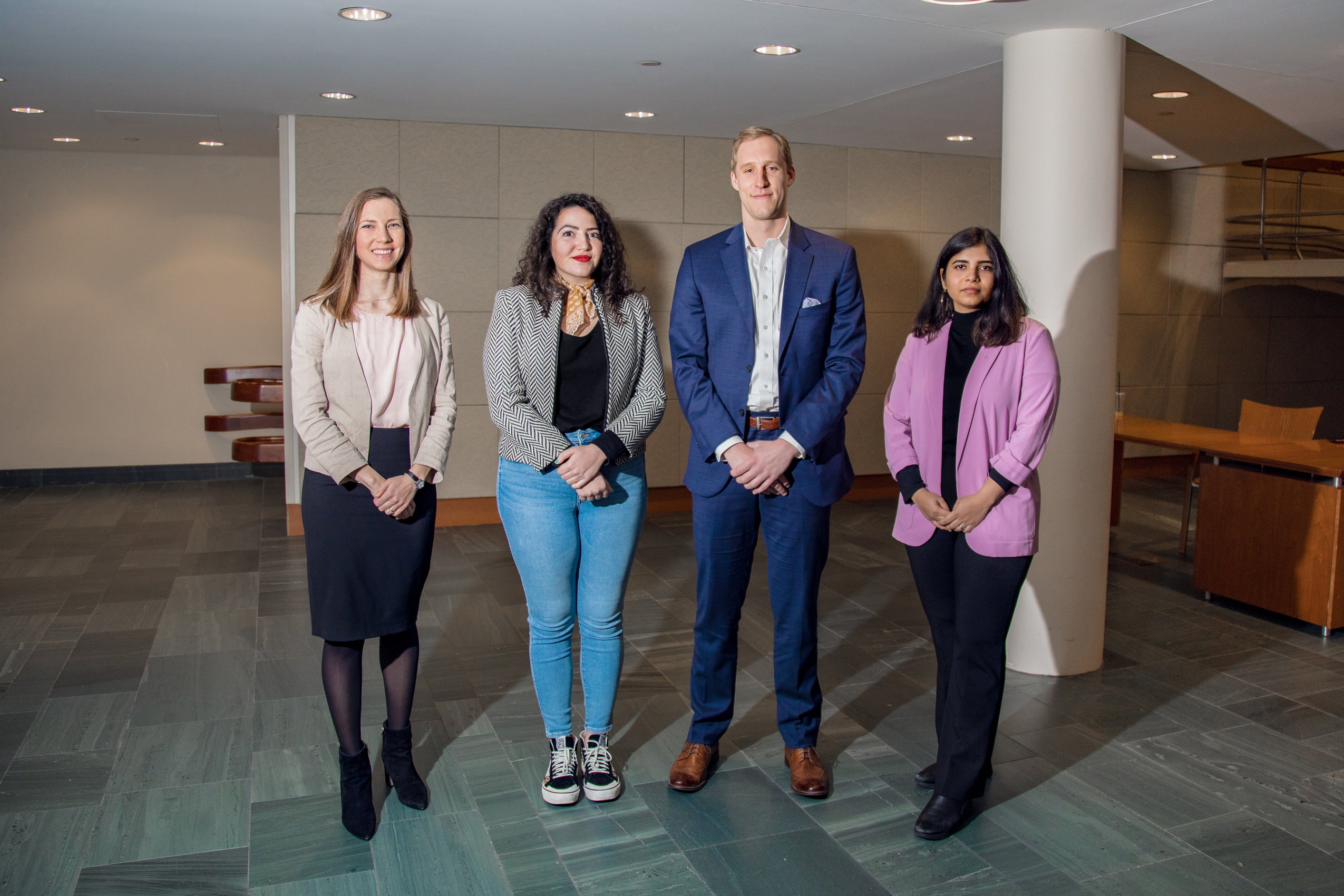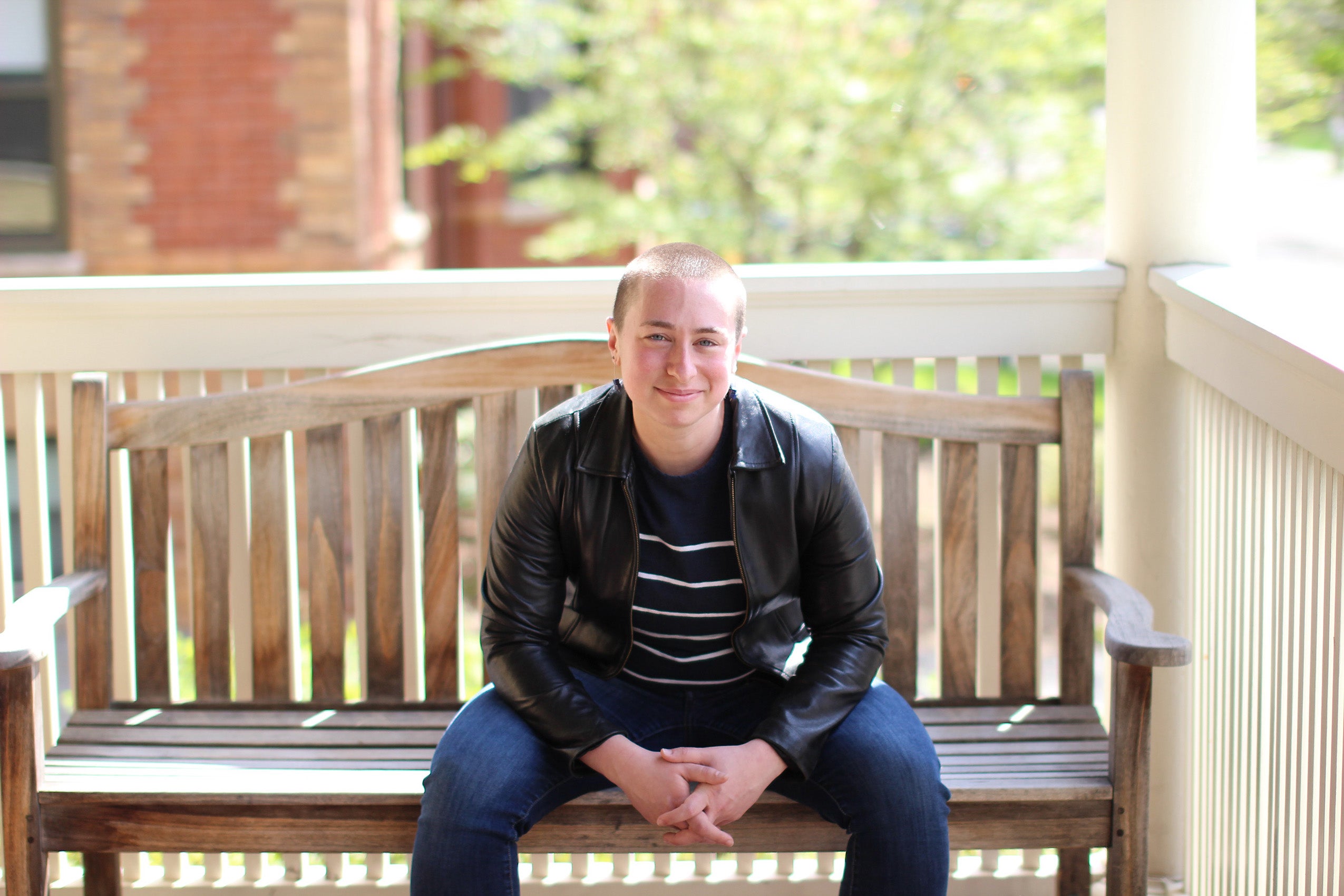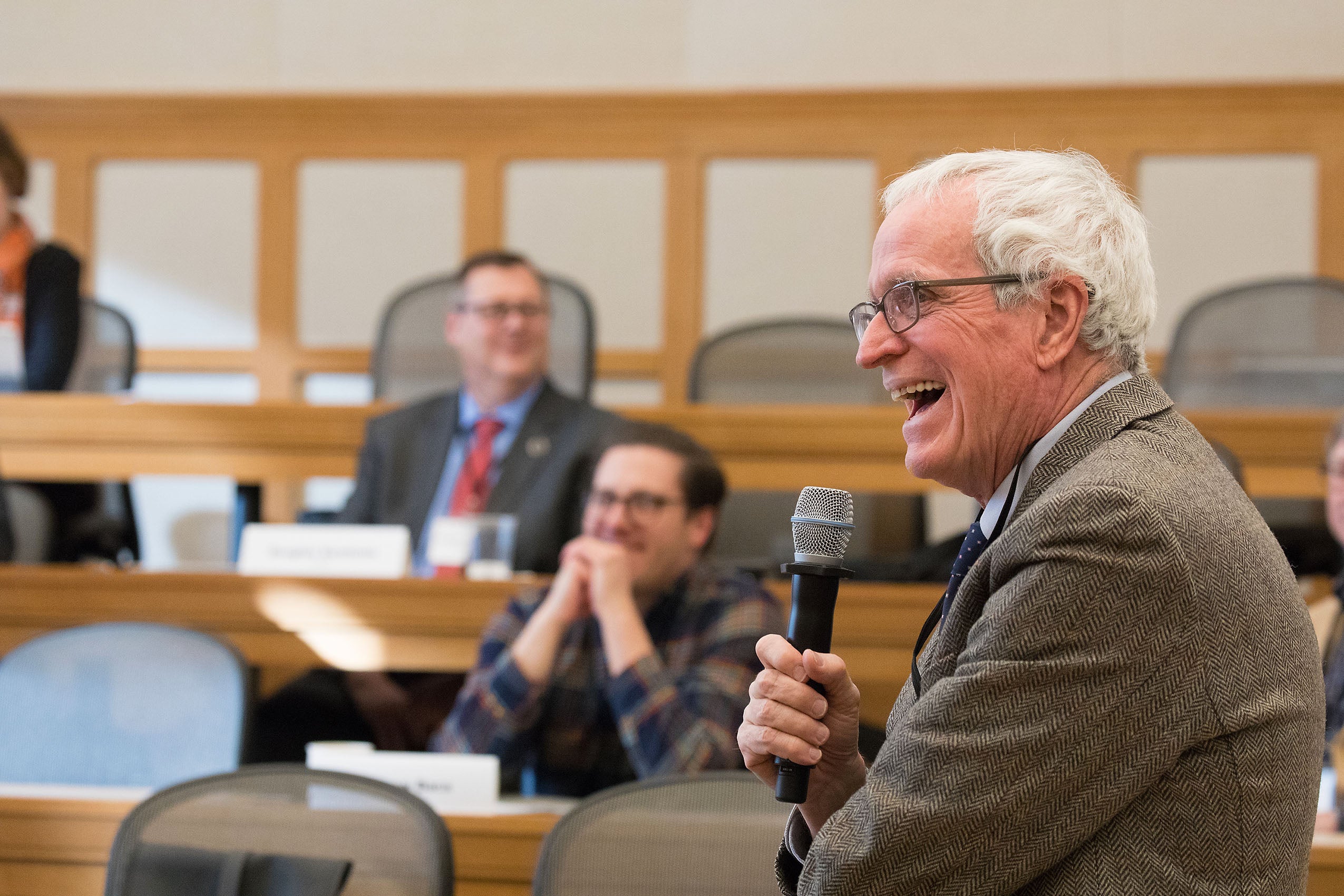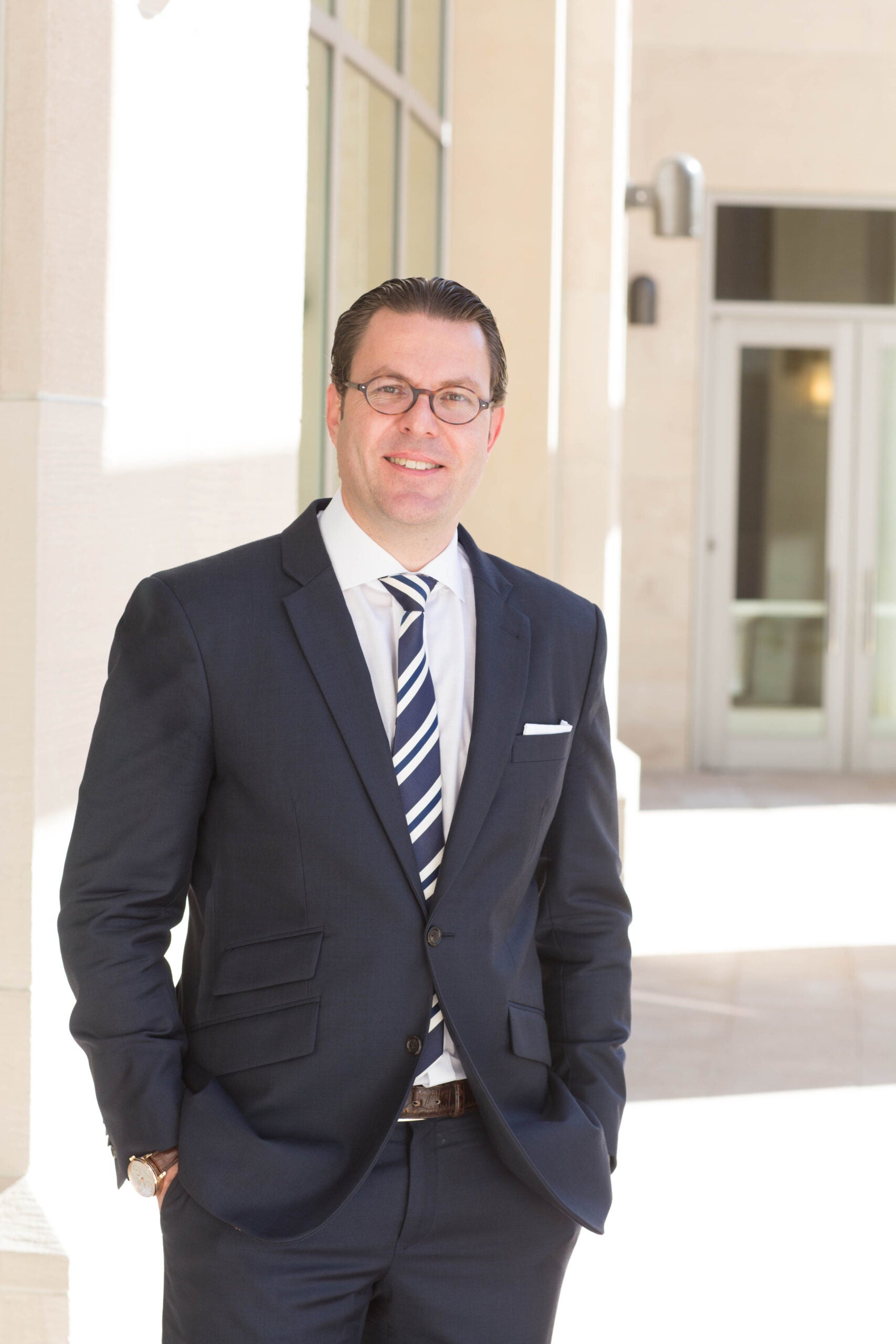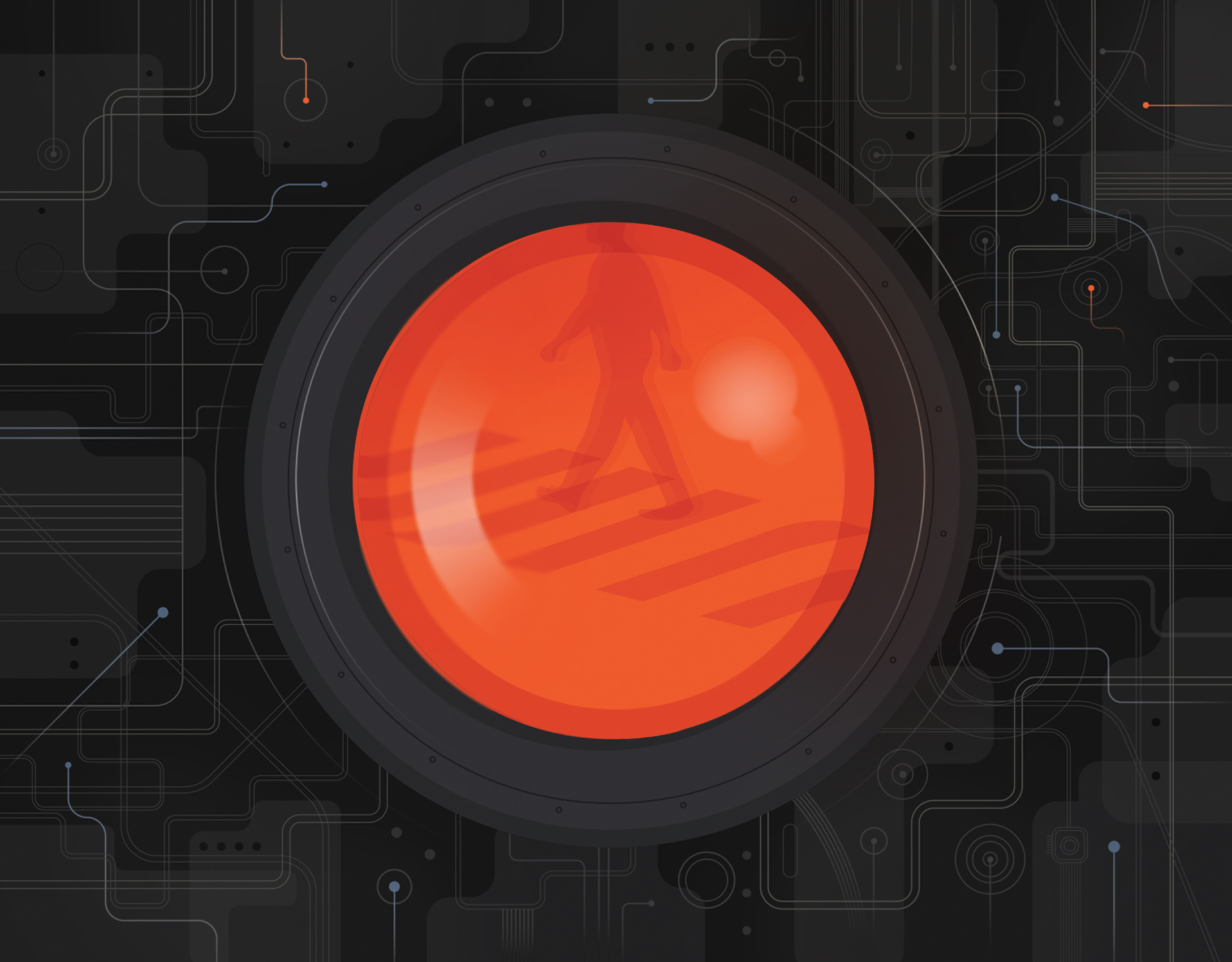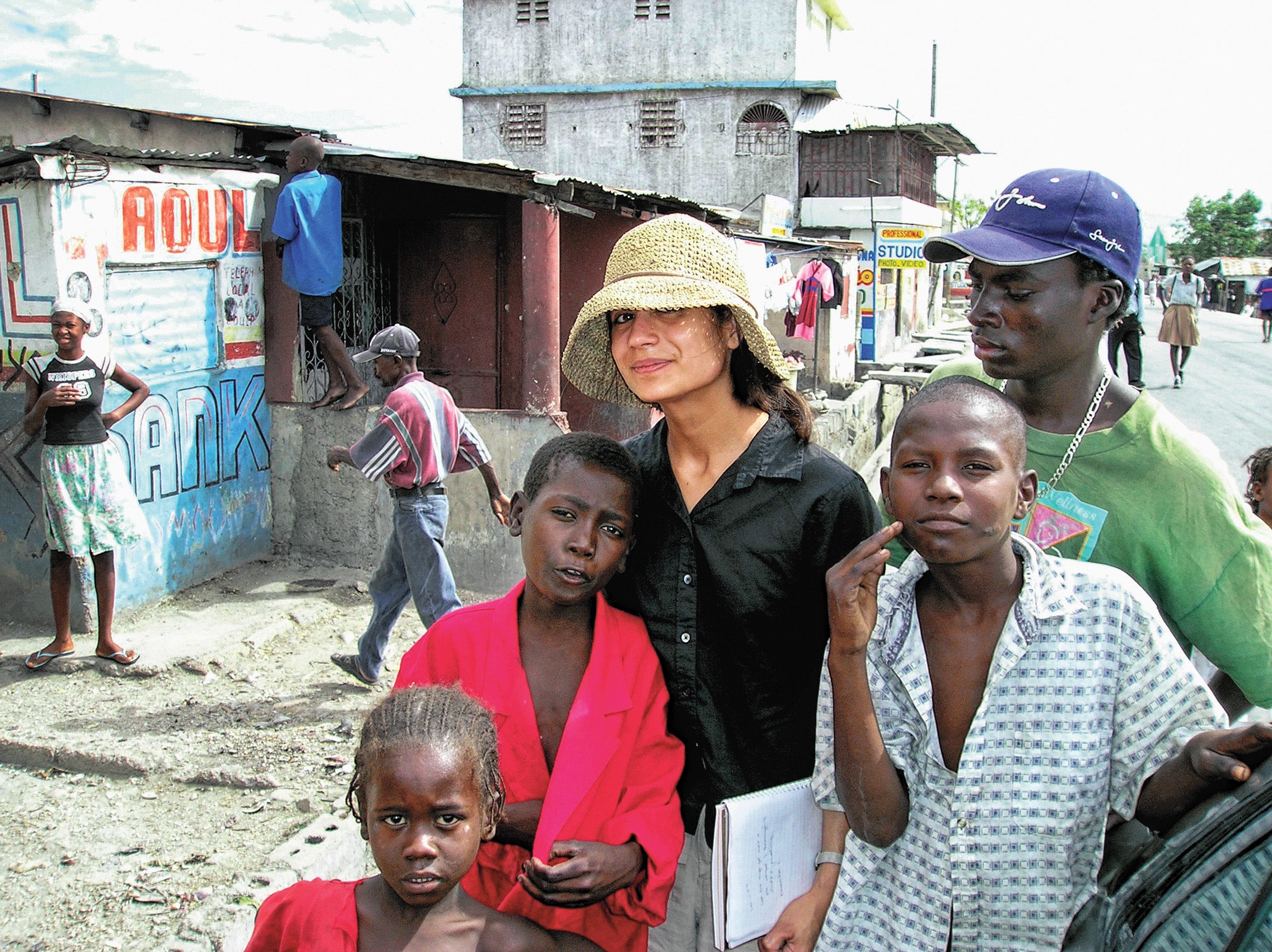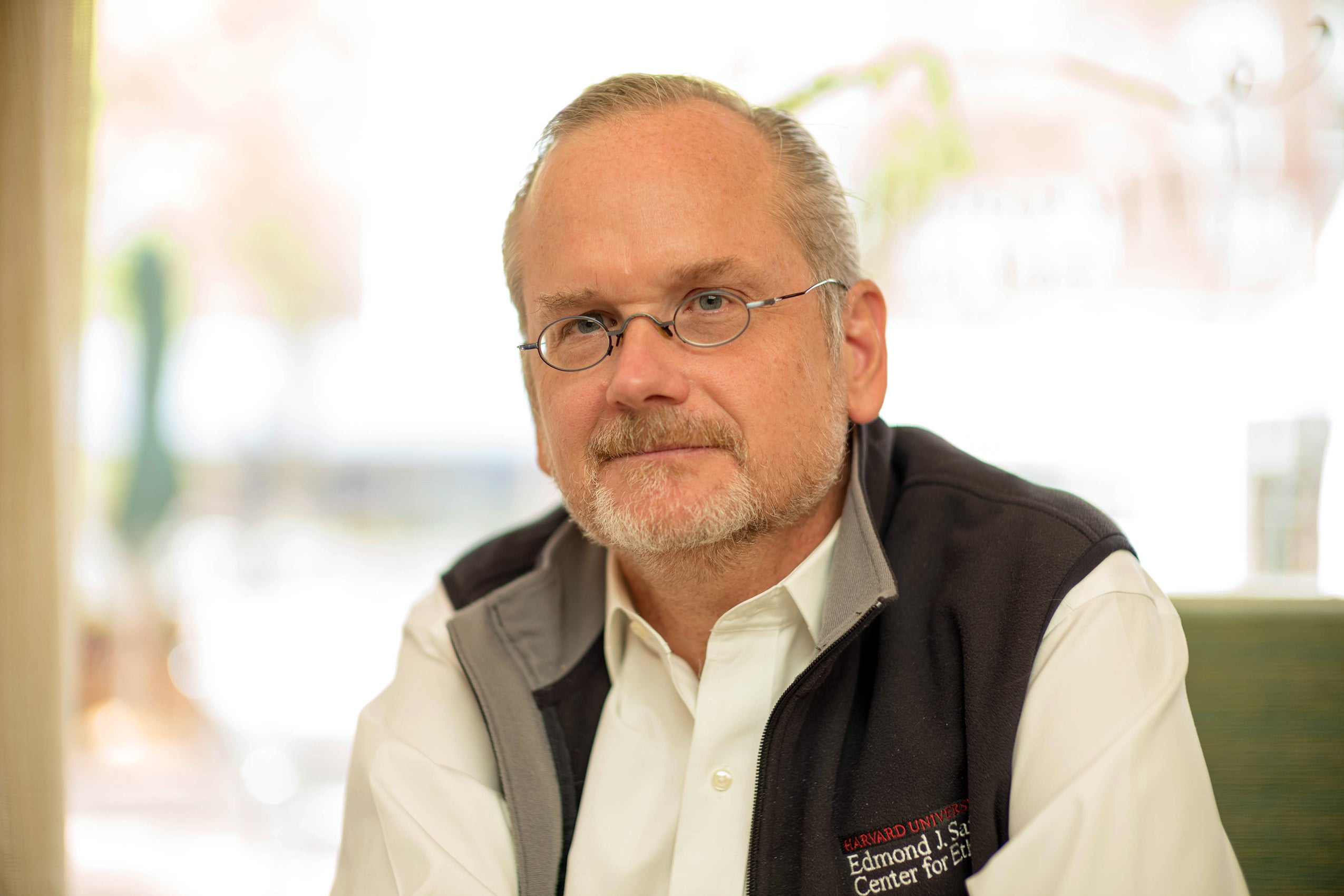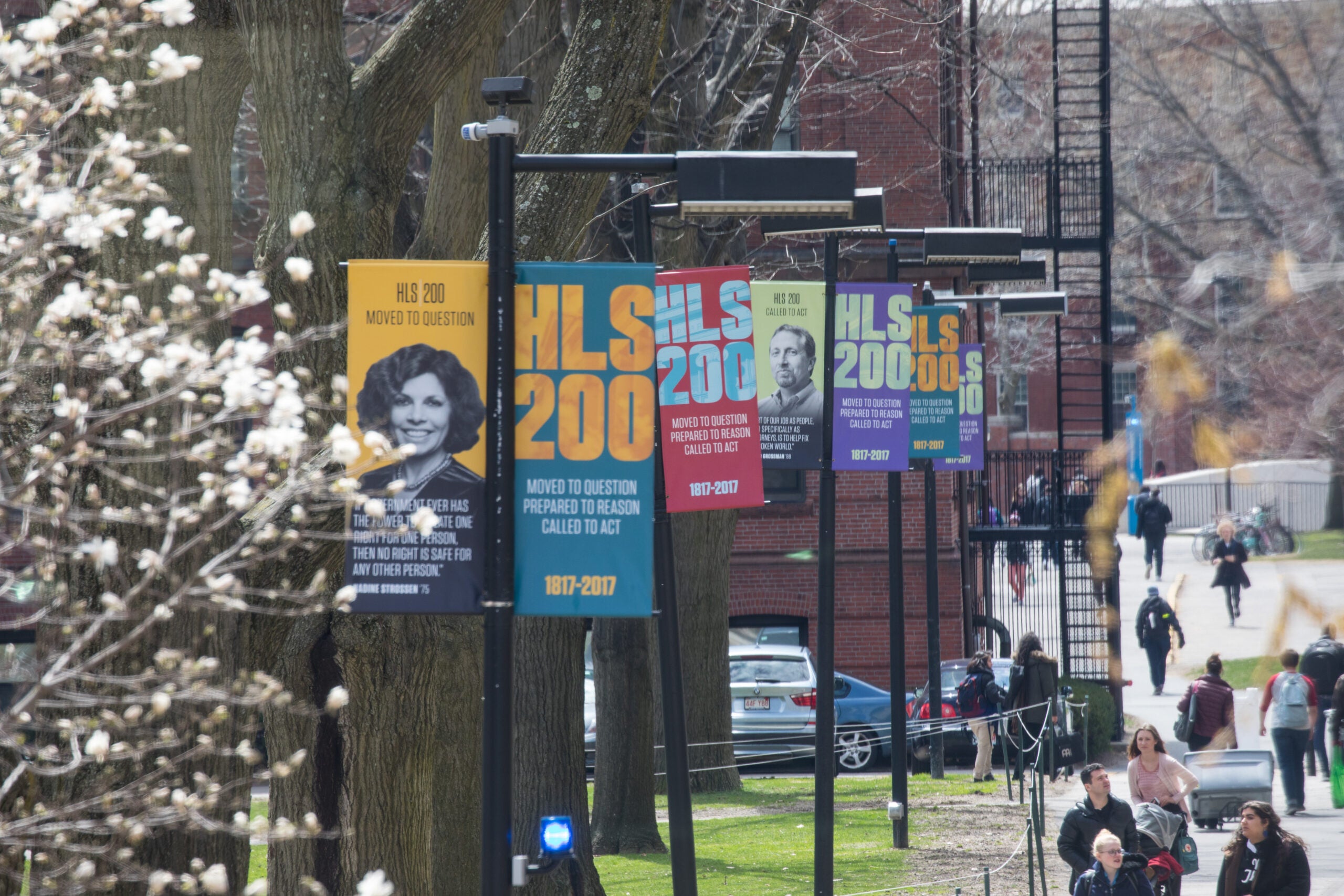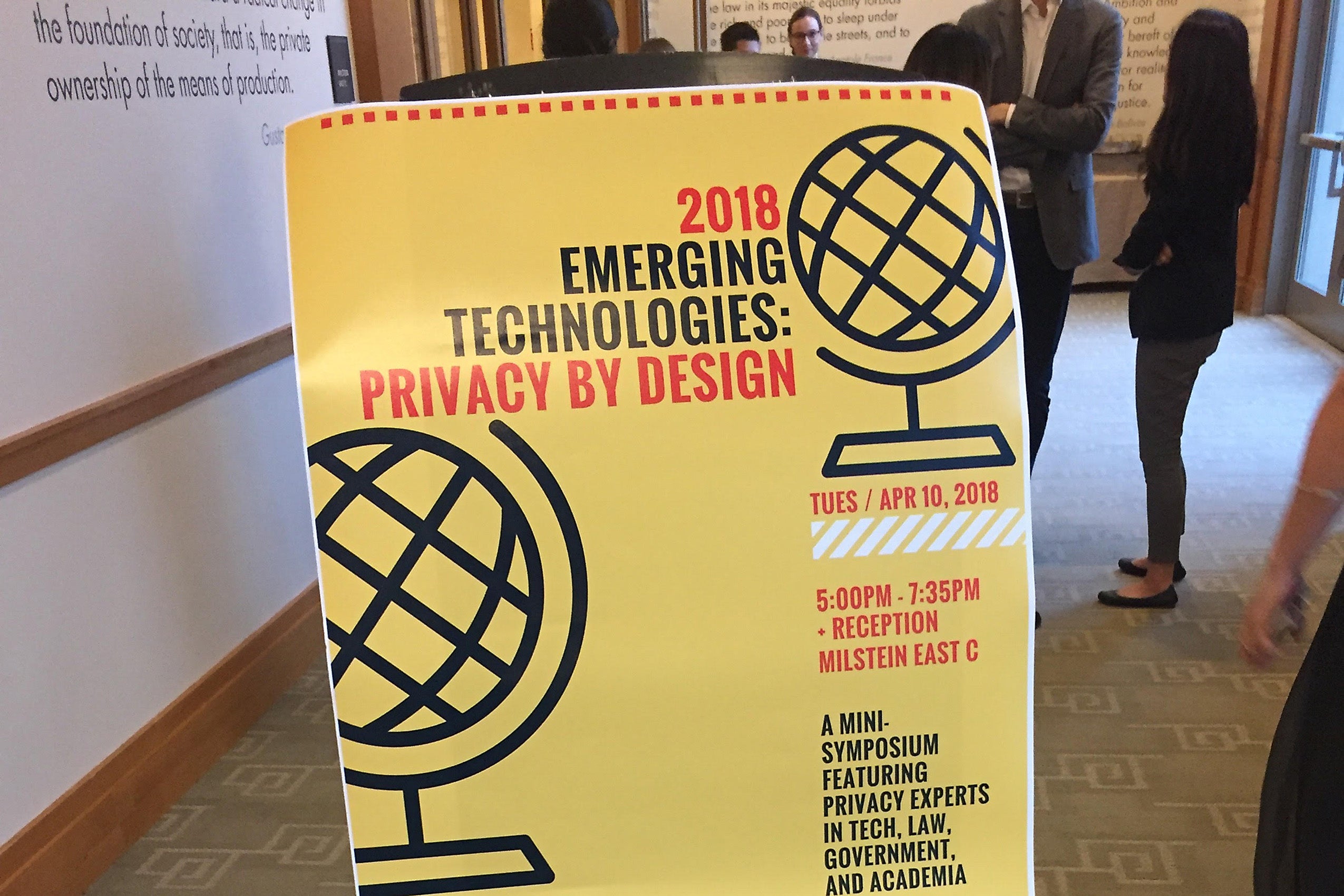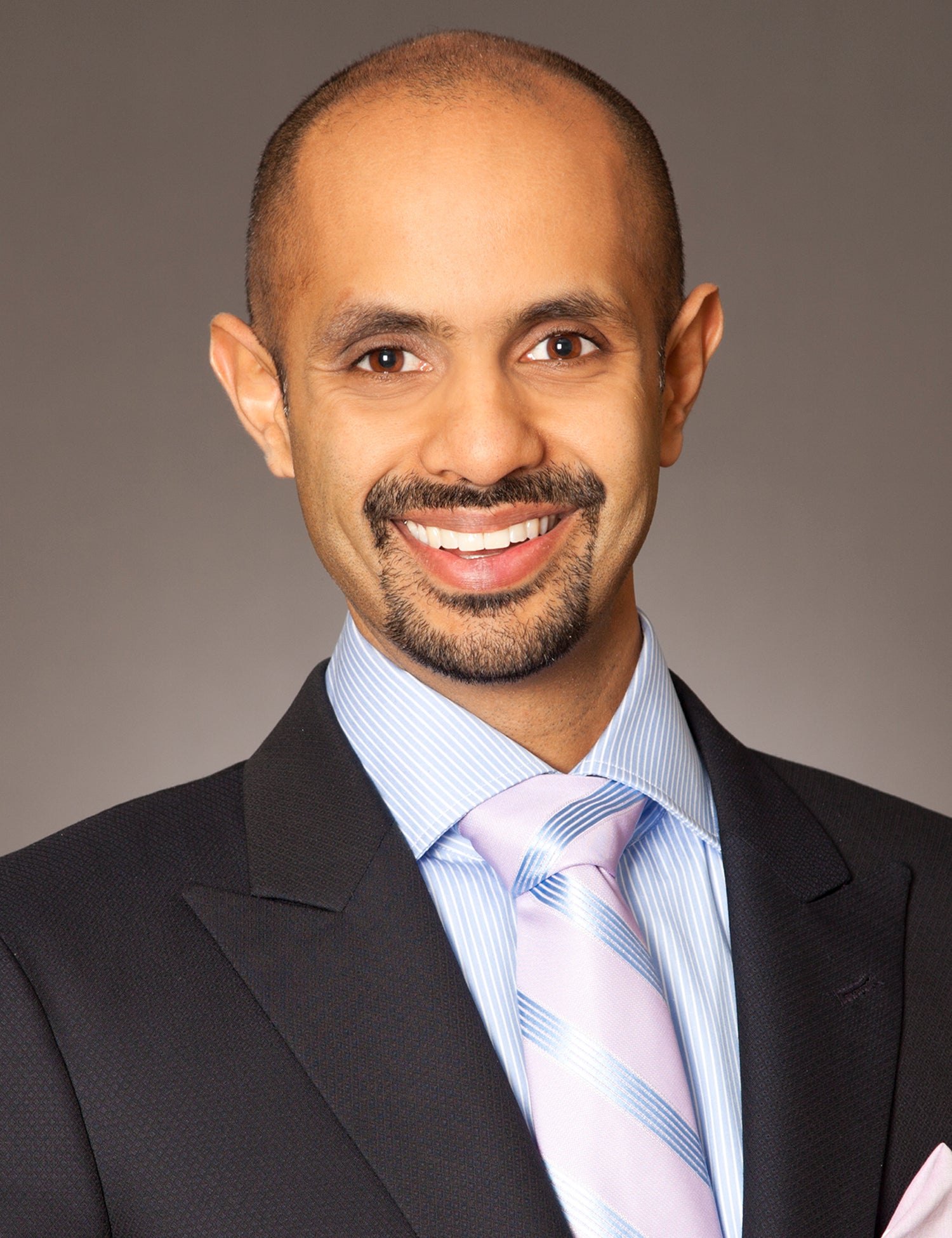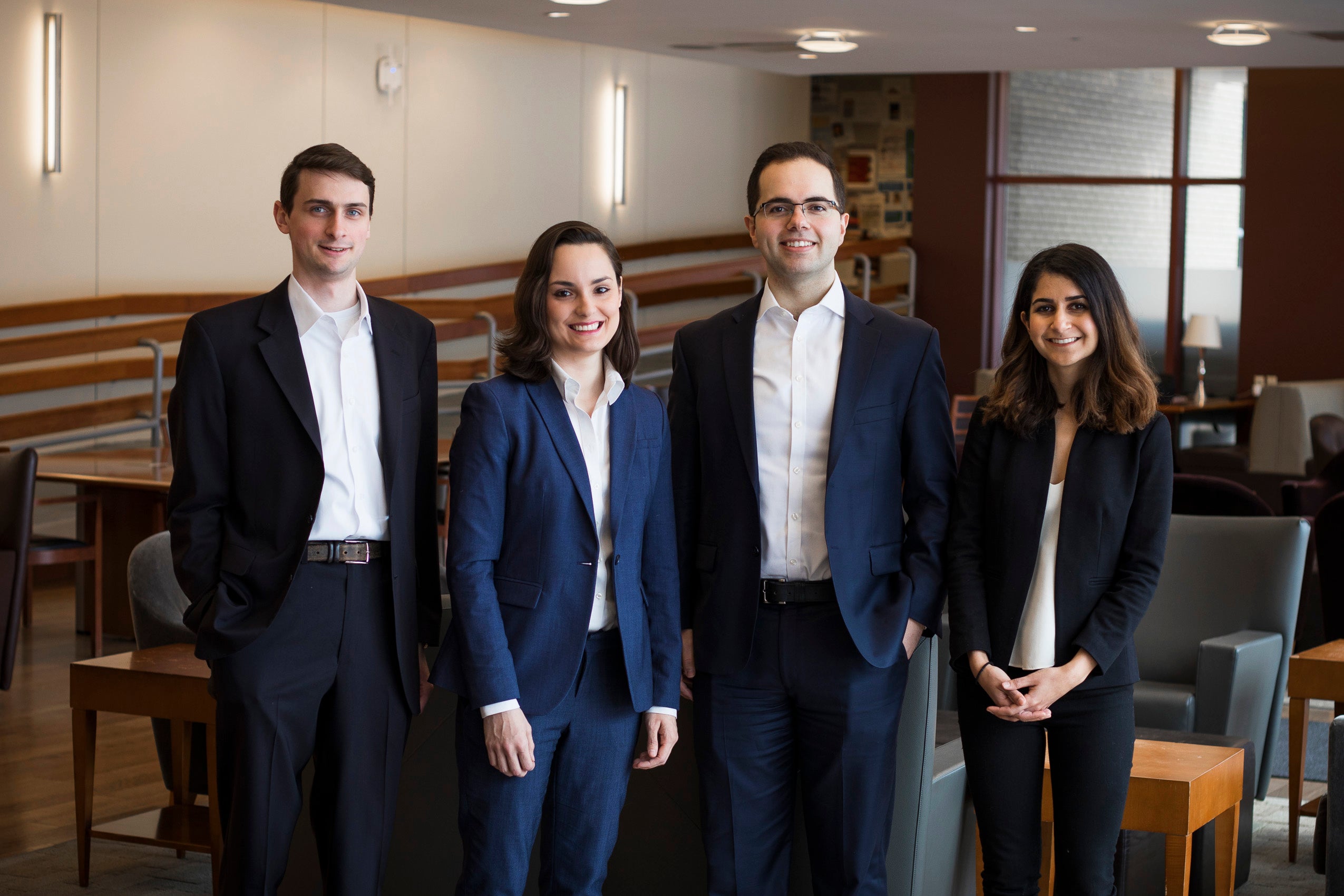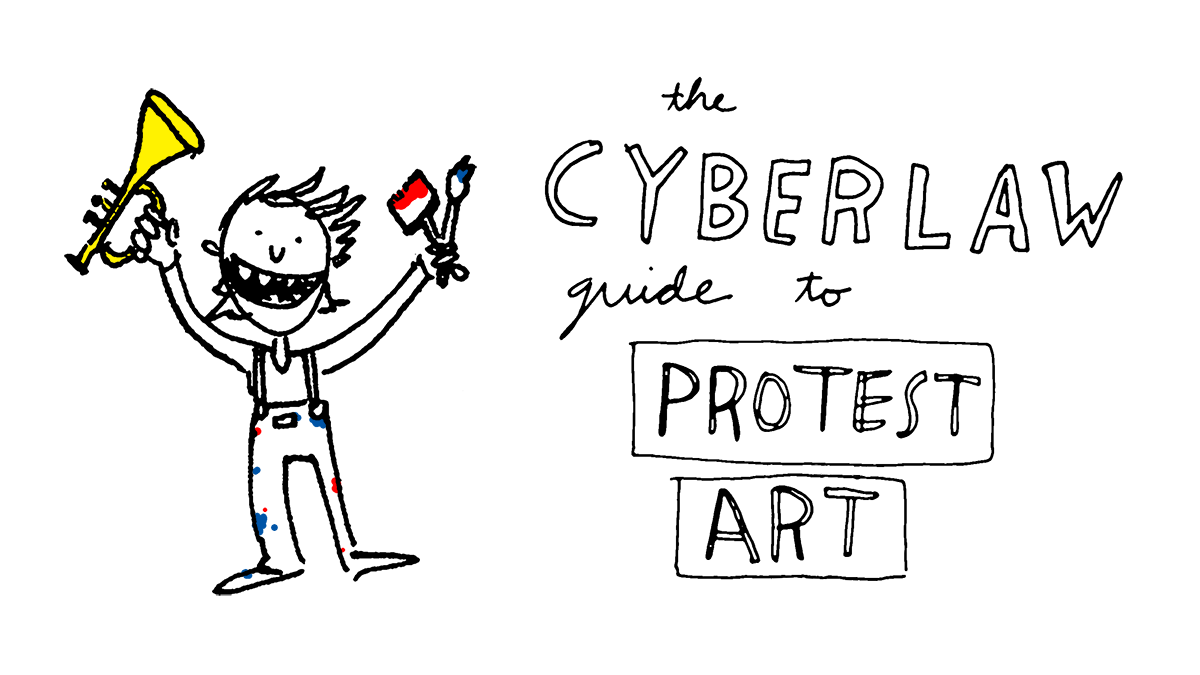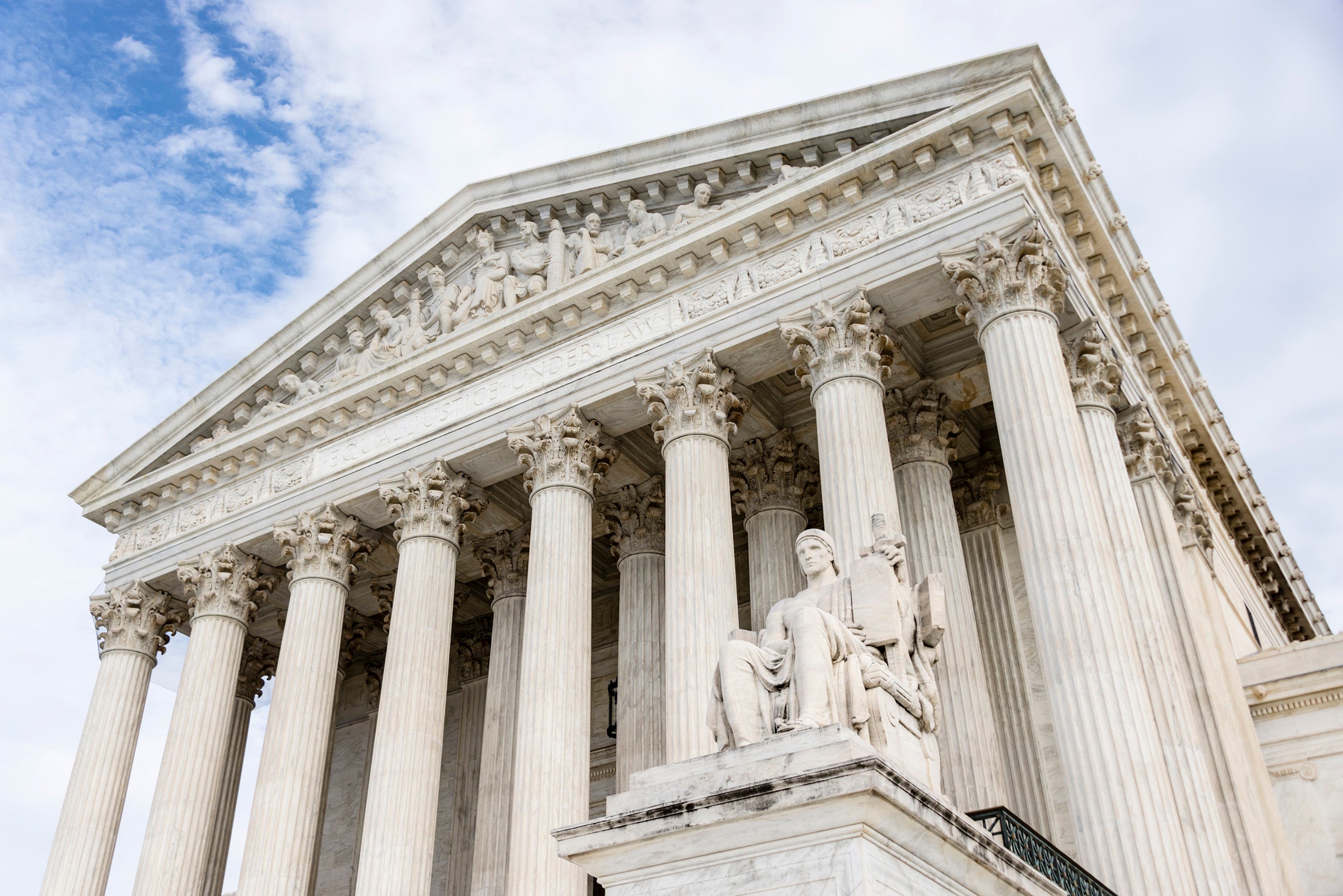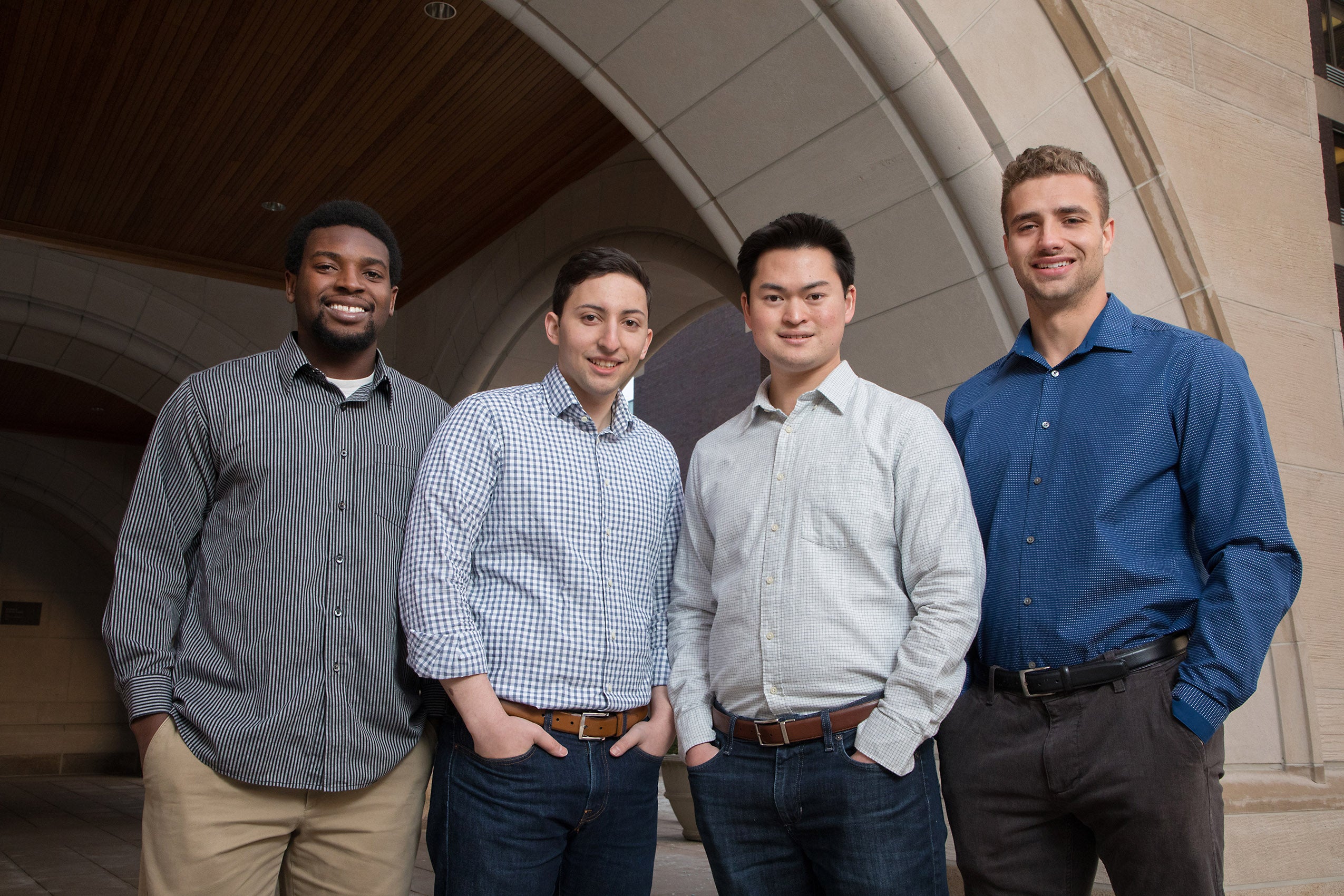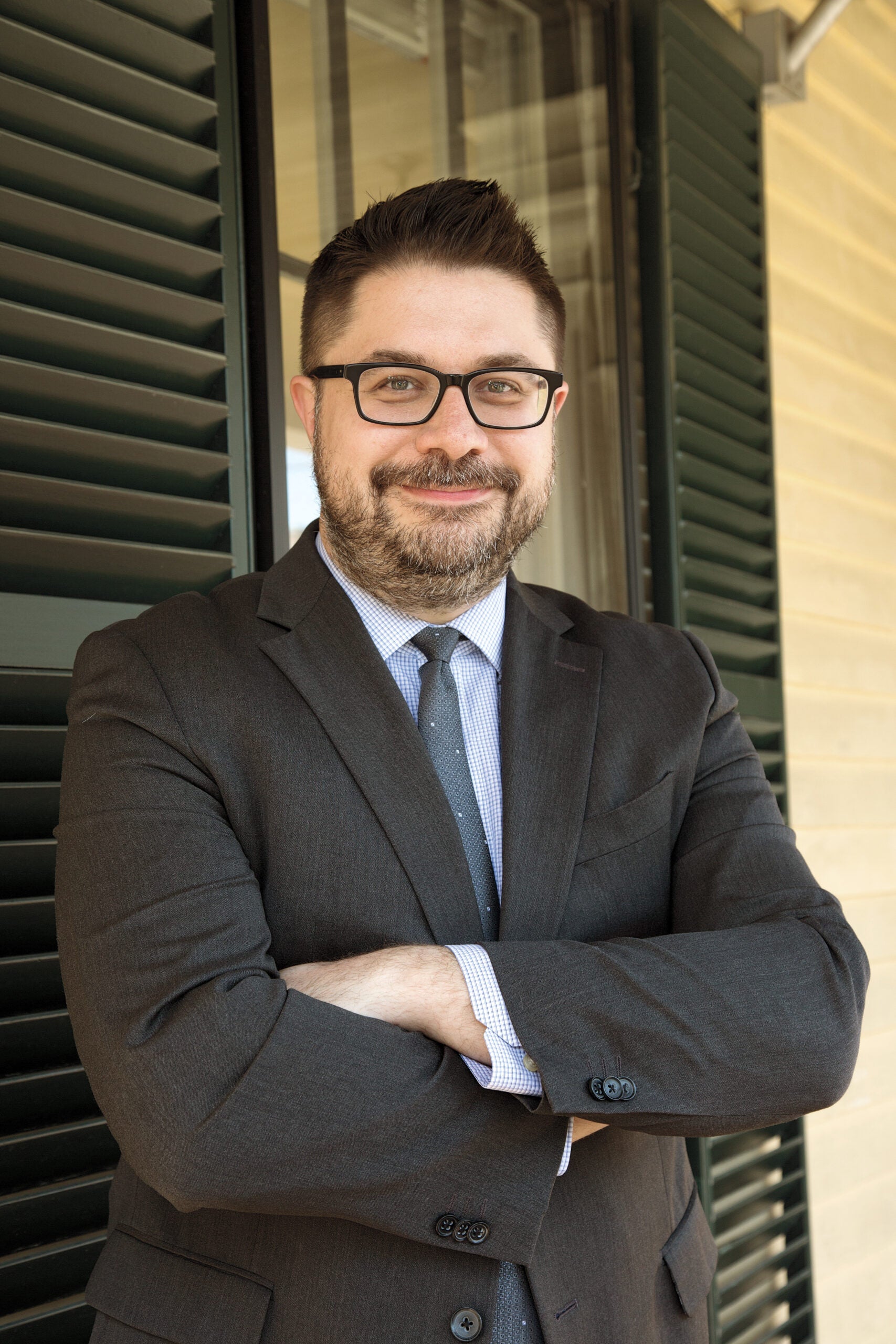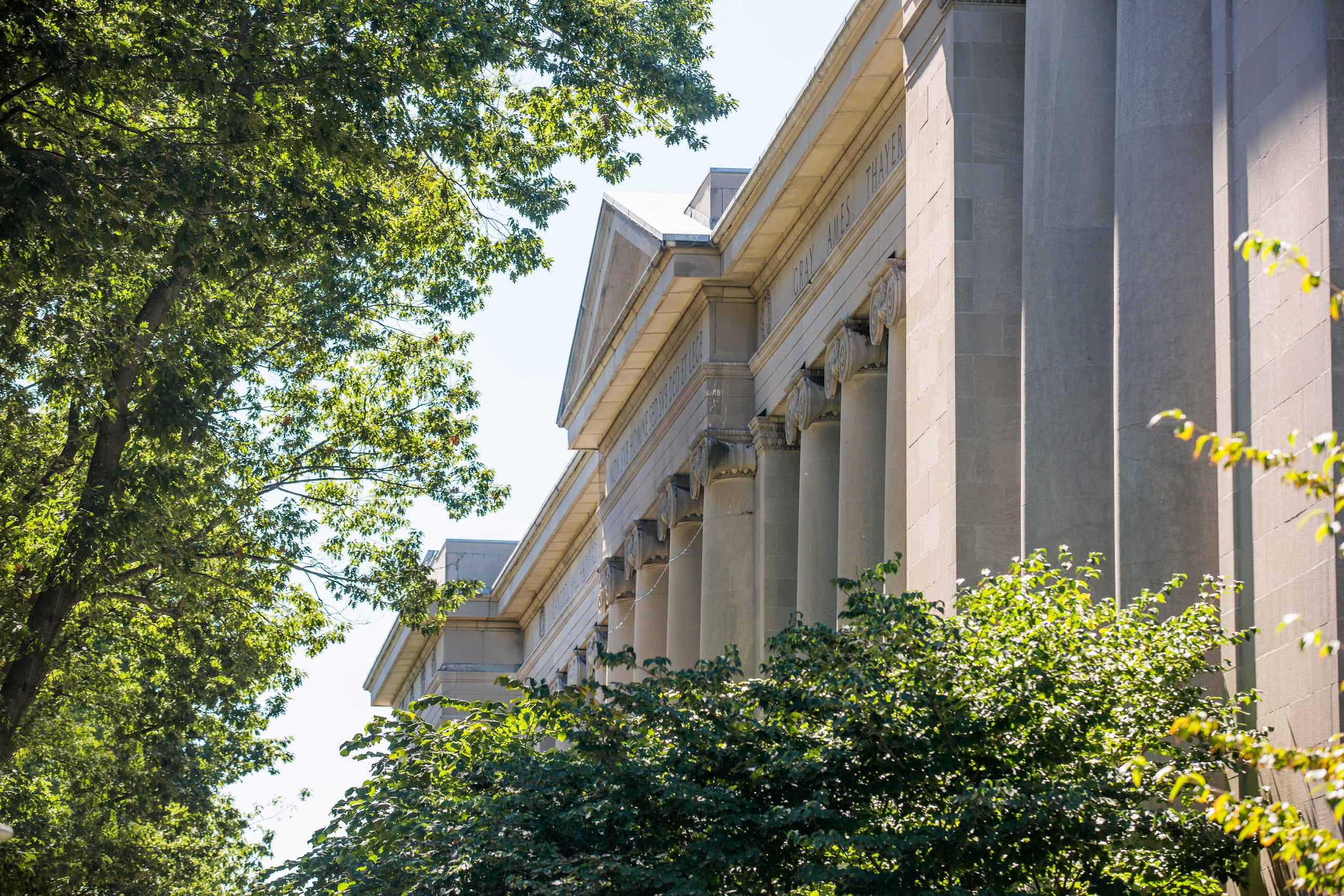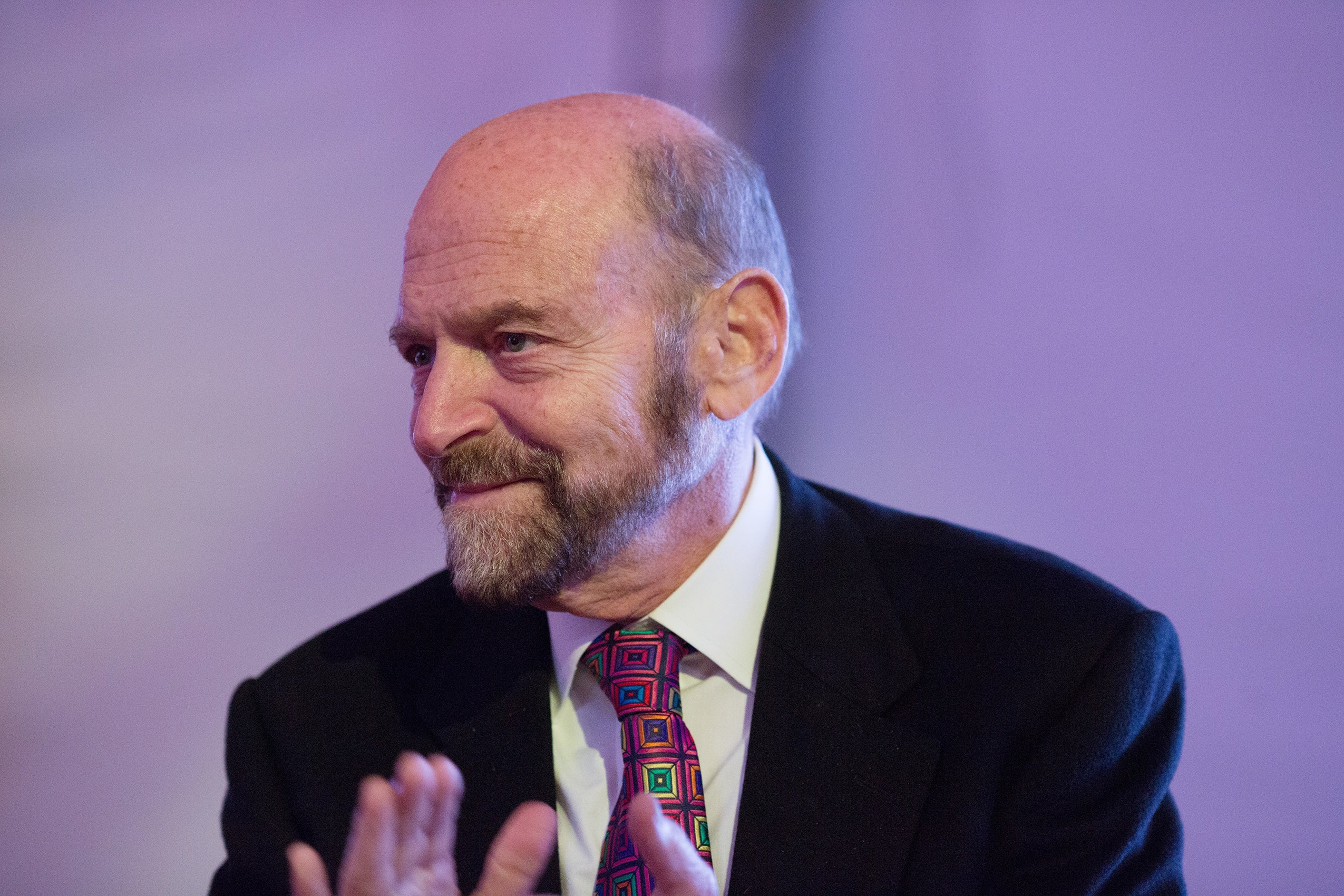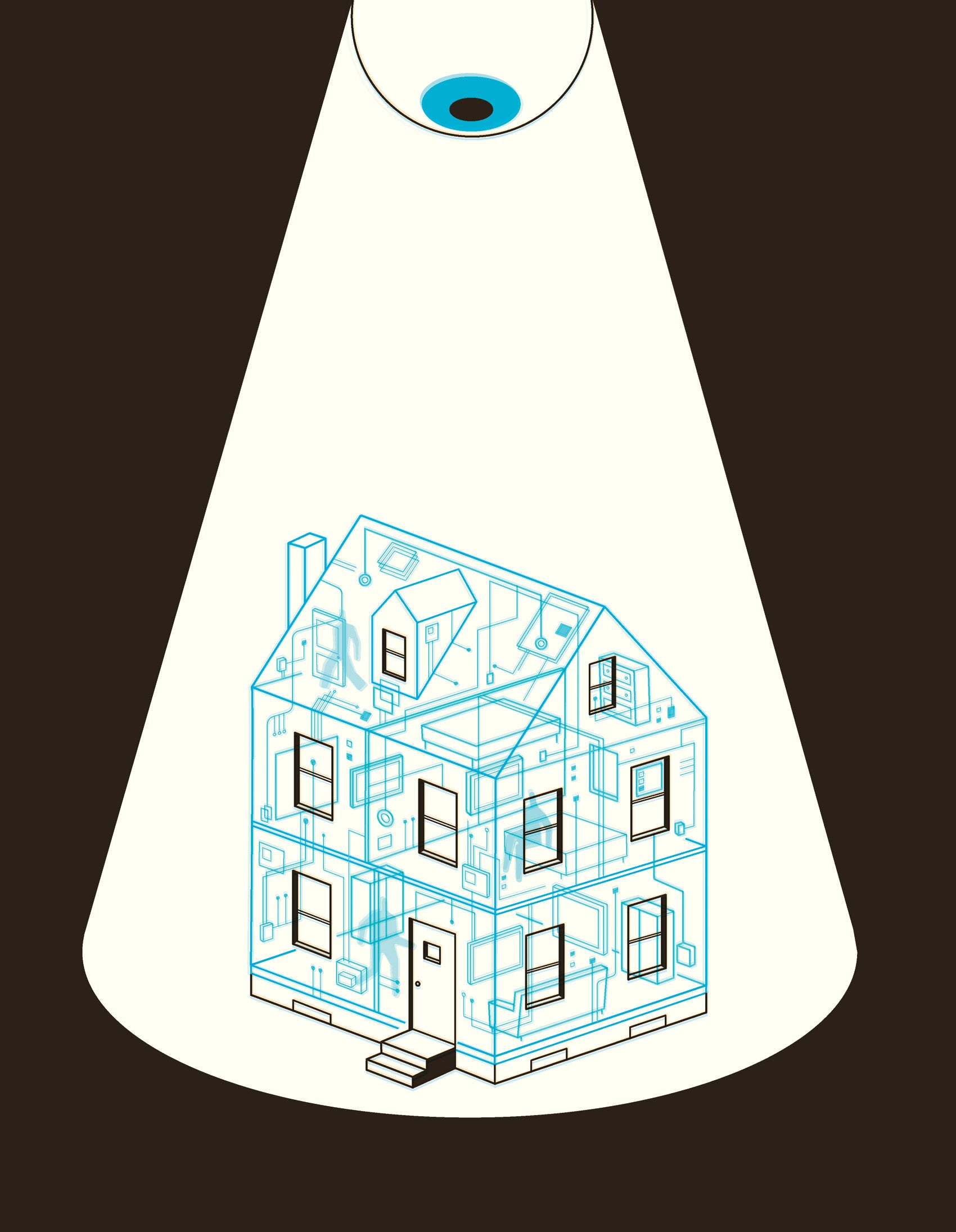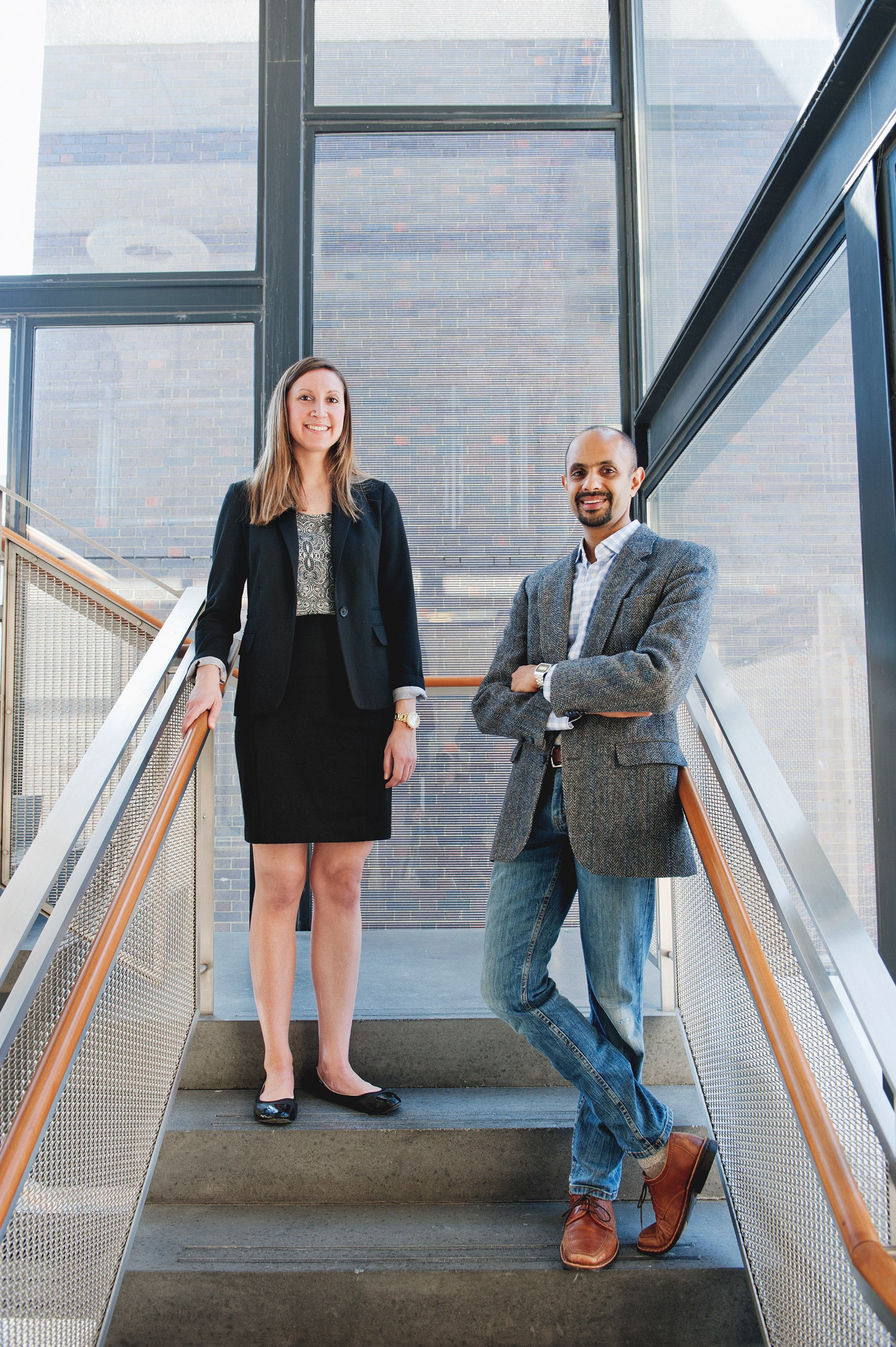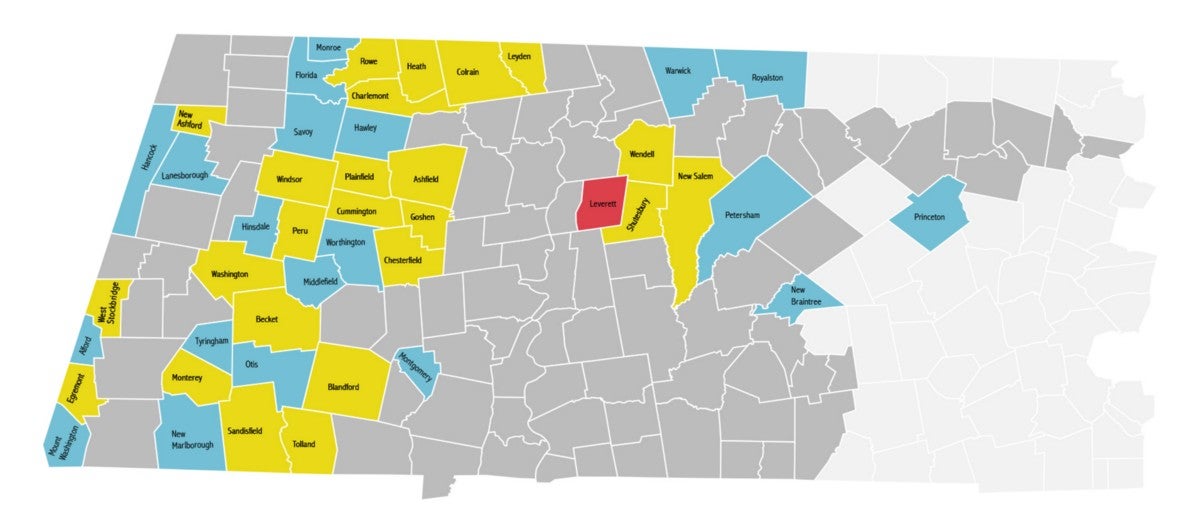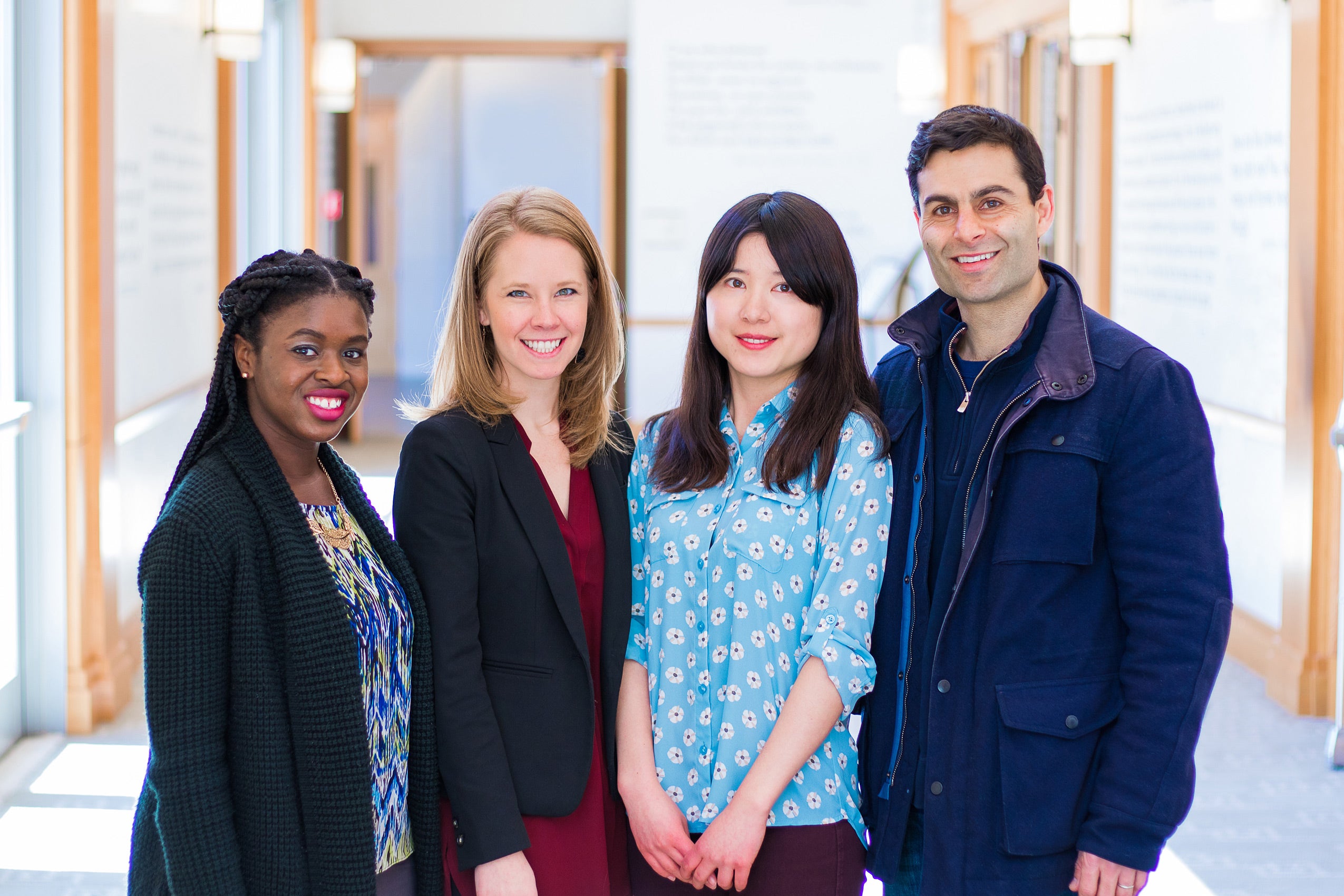Clinics & SPOs
Cyberlaw Clinic
-
During Winter Term, 12 Harvard Law School students traveled to 12 countries as Cravath International Fellows to pursue clinical placements or independent research with an international, transnational, or comparative law focus.
-
From clinical student to clinical instructor
February 27, 2020
Kendra Albert ’16, former student and current clinical instructor in Berkman Klein Center's Cyberlaw Clinic talks about their takeaways from that experience, their current work, and what they’re the proudest of in their time there.
-
The Law and the Digital World
April 3, 2019
Officials from 23 offices of state attorneys general recently met at HLS as part of the Berkman Klein Center’s AGTech Forum series, to discuss tech-driven challenges to privacy and data security that vex state regulators and threaten consumers, and to strategize on how the law can keep up.
-
Why your online data isn’t safe
October 3, 2018
In a Q&A with the Harvard Gazette, Urs Gasser LL.M. ’03, executive director of the Berkman Klein Center, discusses what might be done to protect users from companies that profit from people’s data.
-
Morality in the Machines
June 26, 2018
Researchers at Harvard’s Berkman Klein Center for Internet & Society are collaborating with MIT scholars to study driverless cars, social media feeds, and criminal justice algorithms, to make sure openness and ethics inform artificial intelligence.
-
Evolving and Adapting: The HLS Clinical Landscape
June 26, 2018
More than 100 years after students started the Harvard Legal Aid Bureau, there are now 40 clinics and Student Practice Organizations at HLS, focused on everything from cyberlaw to veterans’ rights.
-
20 years of the Laws of Cyberspace
May 16, 2018
It’s been two decades since Harvard Law School Professor Lawrence Lessig published ‘The Laws of Cyberspace;’ recently, an event at the Berkman Klein Center celebrated how that groundbreaking paper provided structure to the Center's field of study.
-
HLS 200 finale celebrates clinics
May 2, 2018
On April 20, HLS in the Community wrapped up a year-long celebration of Harvard Law School's bicentennial by highlighting the contributions made by HLS clinics and students practice organizations (SPOs).
-
Emerging Technologies: Privacy by Design
April 18, 2018
Students of Professor Urs Gasser’s Spring 2018 Comparative Digital Privacy seminar hosted a symposium on 'Privacy by Design,' convening experts from government, private practice, industry, and academia to weigh in on all things privacy-related, from the difficulty of defining privacy to a comparison of the regulatory regimes in the United States and the European Union.
-
On the web, privacy in peril
March 27, 2018
Vivek Krishnamurthy studies international issues in internet governance as a clinical instructor at Harvard Law School’s Cyber Law Clinic. He spoke with the Gazette about the legal implications of the breach for Facebook, the laxity in U.S. privacy protections, and how Facebook’s difficulties may mark the end of the tech industry’s long deregulation honeymoon in this country.
-
Cravath Fellows pursue law projects around the world
March 14, 2018
In 2018, ten Harvard Law School students were selected as Cravath International Fellows. During Winter Term, they traveled to nine countries to pursue clinical placements or independent research with an international, transnational, or comparative law focus. Here, four of them describe their experiences.
-
Cyberlaw Clinic releases Guide to Protest Art
January 25, 2018
On Jan. 22, the Cyberlaw Clinic at the Berkman Klein Center for Internet & Society released a multi-part Guide to Protest Art, a series aimed at educating people across the political spectrum who are using art to engage in civic dialogue.
-
The Berkman Klein Center's Cyberlaw Clinic, which provides pro-bono legal services to clients on issues relating to the internet, technology and intellectual property, has written in support of a number of technology cases in recent weeks.
-
HLS students harness artificial intelligence to revolutionize how lawyers draft and manage contracts
December 20, 2017
With Evisort, a powerful new search engine that harnesses cloud storage and artificial intelligence, four HLS students hope to revolutionize the costly and labor-intensive way that lawyers currently handle contracts and other transactional work, liberating them for more creative and interesting tasks.
-
Managing Director of the Cyberlaw Clinic Professor Chris Bavitz discusses some of the concerns and opportunities of risk assessment tools for criminal justice reform efforts, and the Berkman Klein Center's work on Ethics and Governance of AI initiative in partnership with the MIT Media Lab.
-
Cyberlaw wins two victories in local court
October 7, 2016
The Cyberlaw Clinic filed amicus briefs in two cases regarding local courts' ruling on ballot selfies and cell phone seizures.
-
Harvard Law School and the Berkman Center for Internet & Society at Harvard University have announced that Michael R. Klein LL.M. '67 has made a gift of $15 million to the Berkman Center, which in recognition, will now be known as the Berkman Klein Center for Internet & Society.
-
The New Age of Surveillance
May 10, 2016
The Internet of Things may be about to change our lives as radically as the Internet itself did 20 years ago. The implications for privacy, national security, human rights, cyberespionage and the economy are staggering.
-
Human Rights and Encryption
May 6, 2016
Last fall, the Cyberlaw Clinic at the Berkman Center for Internet & Society at Harvard Law School, produced a report for Amnesty International on the legal issues surrounding encryption. While the encryption debate is most often painted as a two-sided battle between law enforcement and technology companies, there are many other stakeholders around the world that are deeply concerned about the widespread implications of regulating encryption in iPhones and other telecommunications devices.
-
New Berkman report highlights co-op’s challenges to build a better fiber optic network
April 25, 2016
On April 20, the Berkman Center for Internet and Society released "WiredWest: a Cooperative of Municipalities Forms to Build a Fiber Optic Network," a report written by Berkman Center Co-director and Harvard Law Professor Susan Crawford; Waide Warner, Harvard Law lecturer and senior advisor at Berkman's Cyberlaw Clinic; and Berkman fellow David Talbot.
-
Thirteen Harvard Law School students were selected as the 2016 Cravath International Fellows. The fellows traveled to 12 countries for winter term clinical placements or independent research with an international, transnational, or comparative law focus. Below, four of those students are highlighted.
